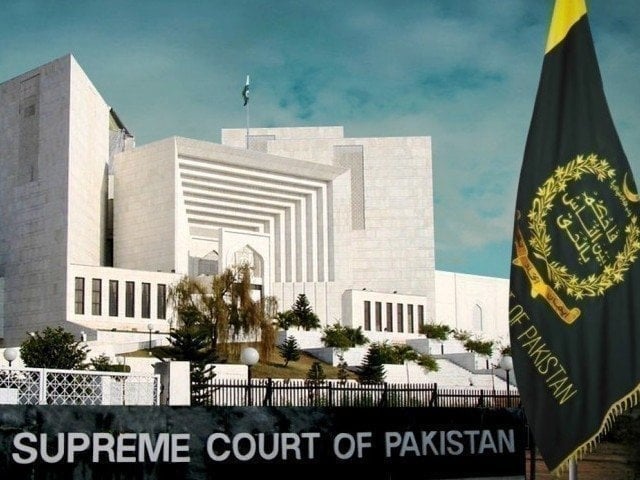Contempt law ‘crucial’ for enforcing orders
ISLAMABAD:
The Supreme Court has ruled that compliance with judicial decisions is not a matter of courtesy but a constitutional requirement.
“Non-compliance not only disrupts this delicate equilibrium but also sets a dangerous precedent that could lead to executive overreach,” said a three-page written order authored by SC’s senior puisne judge Syed Mansoor Ali Shah.
Justice Shah was leading a three-member bench that heard a case with regard to implementation of a September 25, 2017 order of apex court about payment of pension to 11,000 individuals by the National Bank of Pakistan (NBP).
The court noted that in a constitutional democracy, the rule of law is not just a principle but the bedrock upon which the legitimacy of governance rests.
“The Supreme Court of Pakistan, as the apex judicial body, is entrusted with the profound responsibility of interpreting the law, ensuring justice, and upholding the Constitution. Its orders are not merely recommendations or advisories; they are legal mandates that must be followed.
“These decisions are the culmination of rigorous legal scrutiny and deliberation intended to reflect the values and laws of the land. When this court renders a verdict, it does so as the ultimate interpreter of the Constitution.
“To disregard or delay the implementation of such verdicts is to challenge the very framework of our legal system. The compliance with judicial decisions is not a matter of courtesy but a constitutional requirement that safeguards this balance. Non-compliance not only disrupts this delicate equilibrium but also sets a dangerous precedent that could lead to executive overreach,” it said.
It said implementation of these orders is crucial for maintaining public confidence in the judicial system as courts are seen as the defenders of rights, the arbiters of disputes, and the interpreters of laws.
The verdict said if the decisions can be easily ignored or sidestepped by the individuals or entities, it undermines public trust in the efficacy of the judiciary and, by extension, the entire government.
“This erosion of trust can lead to a lack of faith in the processes that govern citizens’ lives and, ultimately, in the democratic system itself. The importance of implementing these orders cannot be overstated, and it is imperative that the institutions recognize that they have no other choice but to comply.
The SC noted that the law of contempt is a critical tool that serves to enforce court orders, ensuring that the judiciary is respected and that its decisions are not taken lightly.
It said the power to hold individuals or entities in contempt for failing to comply with a court order is fundamental to the judiciary’s ability to function effectively.
“Without this power, the judiciary would be rendered toothless, unable to enforce its decisions, thereby jeopardizing the administration of justice.
“The individuals or entities have no other choice but to implement the judgment of the court, for in doing so, it upholds the Constitution, strengthens democracy, and preserves the public’s trust in justice and the rule of law,” it added.

